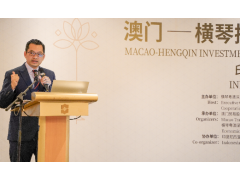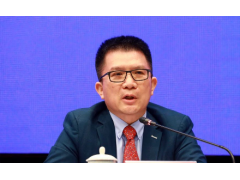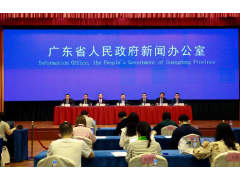Our reporter Chen Jingbin reports from Guangzhou
Recently, the State Council Information Office held a regular policy briefing. The Ministry of Commerce stated at the briefing that helping companies stabilize orders and expand markets is an important step in promoting foreign trade to stabilize its scale and optimize its structure. In the next step, the Ministry of Commerce and other departments will take various measures to help enterprises obtain new orders and explore overseas markets.
As a major foreign trade province, April 21 this year marks the 8th anniversary of the Guangdong Pilot Free Trade Zone (hereinafter referred to as "Guangdong Pilot Free Trade Zone").
Over the past eight years, the customs in Guangdong Province have focused on smoothing the logistics channels in the Guangdong-Hong Kong-Macao Greater Bay Area, promoting the development of new trade formats, and implementing smart supervision, and supporting the high-quality development of the Guangdong Pilot Free Trade Zone. In 2022, the province's pilot free trade zone will achieve a total import and export value of 535.08 billion yuan, a year-on-year increase of 27.8%, and its proportion in the province's foreign trade will steadily increase.
In fact, the reason why the Guangdong Pilot Free Trade Zone has achieved steady improvement in the province's foreign trade is also due to the continuous advancement of the "delegation, regulation and service" reform and the continuous improvement of the business environment.
Chen Jianwei, an associate professor at the National School of Opening-up at the University of International Business and Economics, pointed out to the reporter of China Business Daily that since Guangdong Province implemented the reform of "decentralization, regulation and service", the greatest impact on foreign trade enterprises is reflected in two aspects: "saving time" and "improving efficiency". "The process time of starting a business is shortened and the efficiency is improved, which is conducive to stimulating the entrepreneurial spirit of entrepreneurs. The management authority related to the import and export of enterprises is greatly simplified, the processing time is shortened, the processing time of various tasks such as enterprise import and export declarations is shortened, and the efficiency is improved. Enterprises will be able to better seize market opportunities and develop themselves.”
"Decentralization, management and service" reform promotes steady growth of foreign trade
In recent years, Guangdong Province has further promoted the reform of "decentralization, regulation and service".
"If you want to grow high, you must enrich your foundation." The business environment is the soil for the survival and development of an enterprise, and the quality of the "soil" is directly related to the vitality of business entities and the driving force for economic development. As an important part of my country's optimization of the business environment, the "decentralization, regulation and service" reform can also better serve import and export enterprises and provide them with strong support and guarantee for equal competition and vigorous development.
In recent years, Guangdong Province has deepened the reform of "decentralization, regulation and service", continuously optimized government services, innovated methods, and formed a batch of experience in optimizing the business environment that can be replicated and promoted.
Guangzhou, Shenzhen, Gongbei, Huangpu and other customs have steadily expanded the scope of reform pilots of the "Greater Bay Area Combination Port" and "Bay Area One Port Connect", and enhanced the international shipping port resources of ports along the river through complementary port resources, connecting the Pearl River Delta manufacturing industry with the In the port, the average storage period of goods is greatly shortened, which significantly saves costs for enterprises.
Since the launch of the "combined port" and "one-port" reform pilots, up to now, a total of 44 routes have been opened in Guangdong Province, and a total of about 400,000 TEUs of goods have been transported through this mode. The customs in Guangdong Province is actively promoting the pilot reform of "combined ports" and "one port link". At present, this model has covered cities in the Guangdong-Hong Kong-Macao Greater Bay Area, accelerating the development of cross-border logistics, and realizing the efficient linkage of port groups in the Guangdong-Hong Kong-Macao Greater Bay Area.
Among them, the customs explored and implemented a new model of mobile remote supervision in Nansha, Qianhai and Hengqin in the Guangdong Pilot Free Trade Zone, and promoted innovative measures such as "rectification of imported pre-packaged food labeling technology and mobile remote supervision", effectively improving supervision efficiency; It has also strengthened regulatory cooperation with Macau, and implemented customs clearance measures for eligible food manufactured in Macau to the mainland to achieve "second-speed" customs clearance of goods and effectively reduce business costs.




